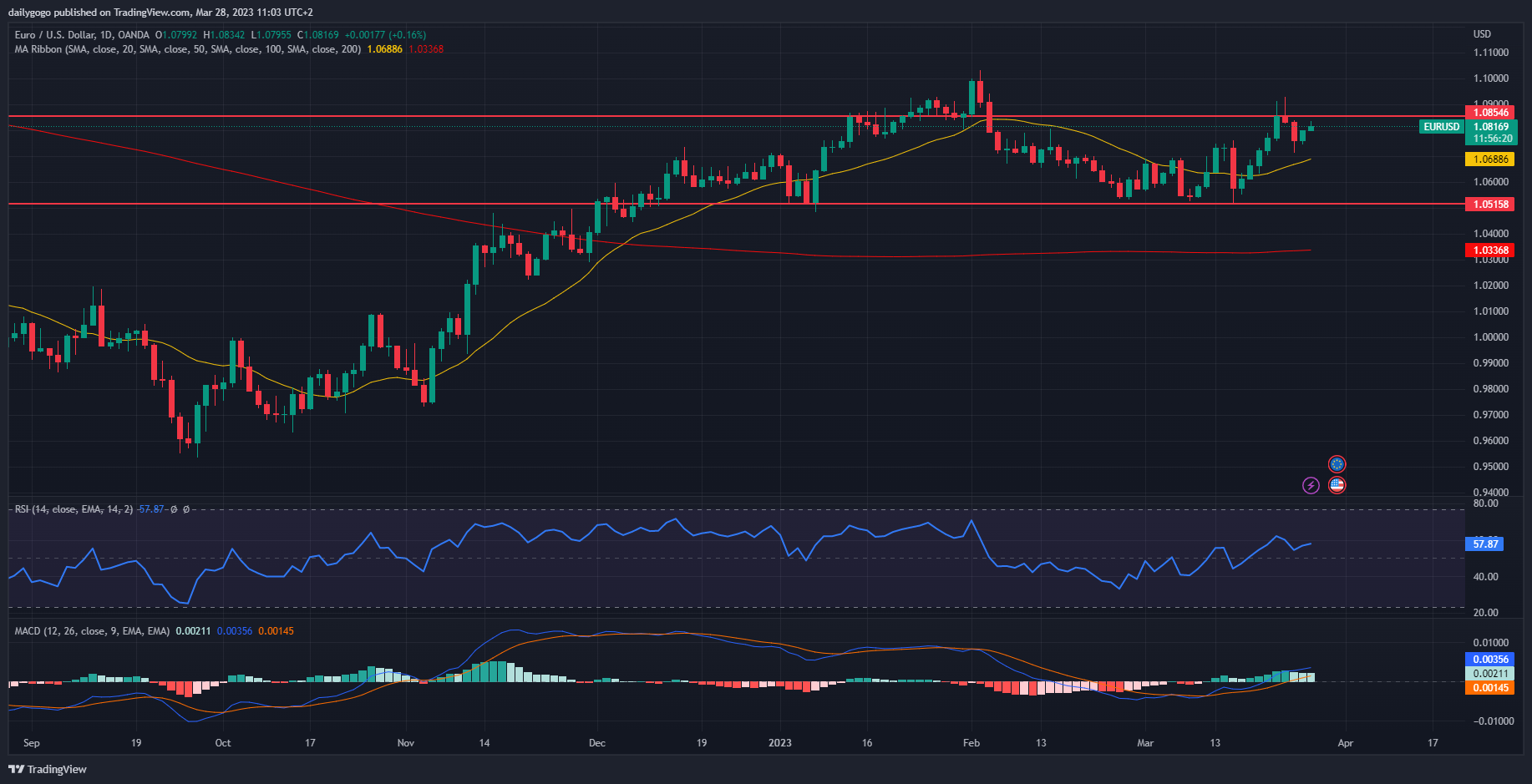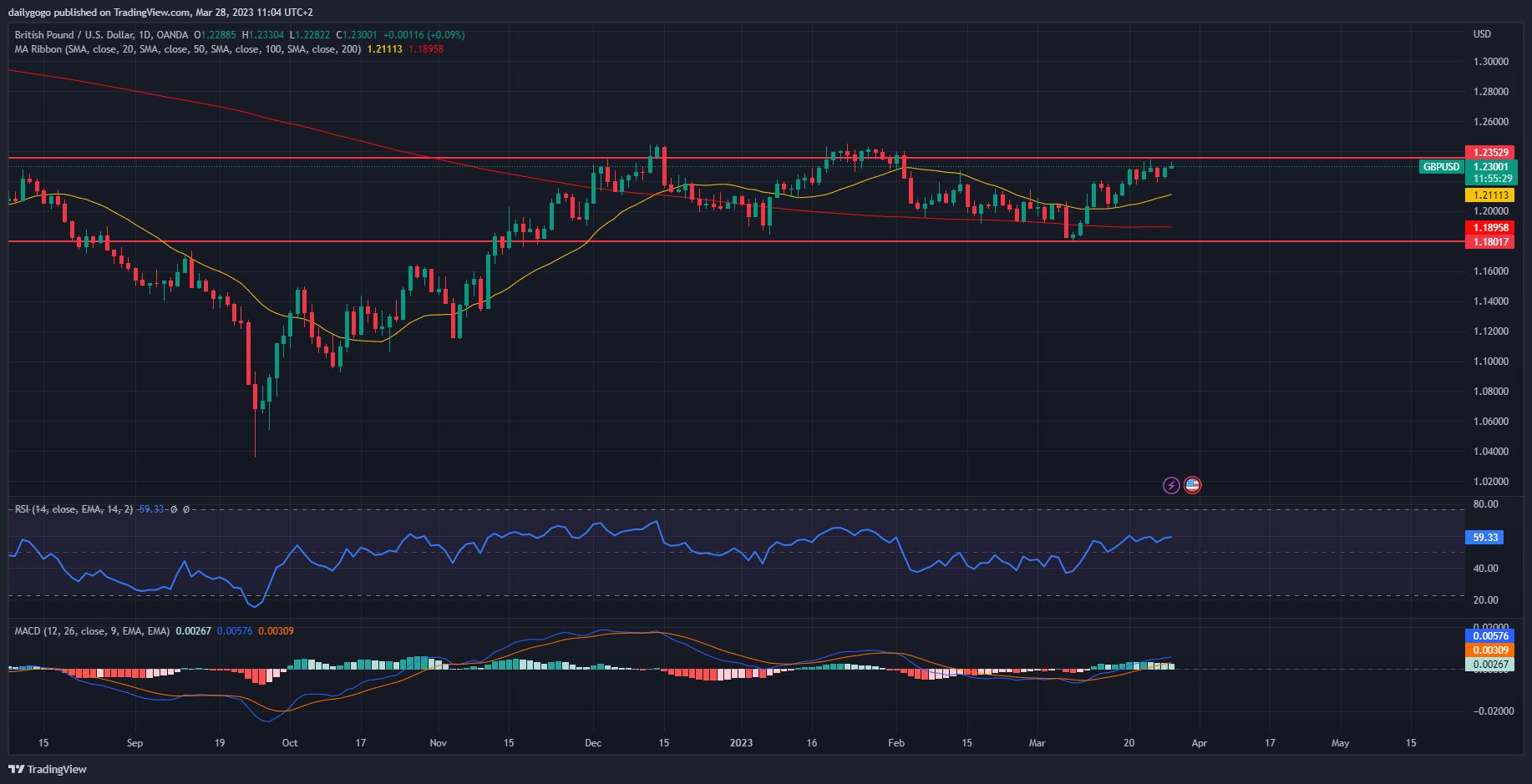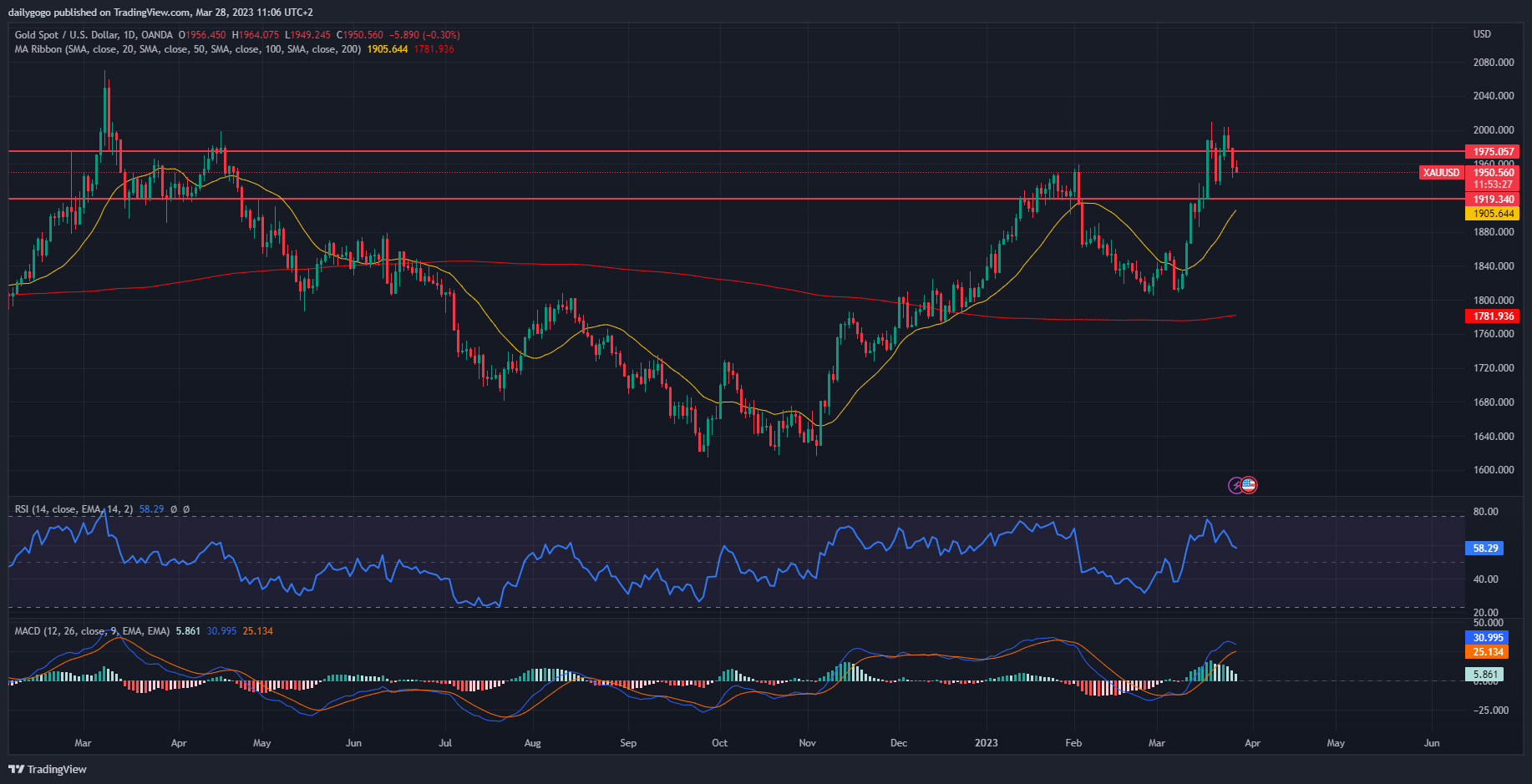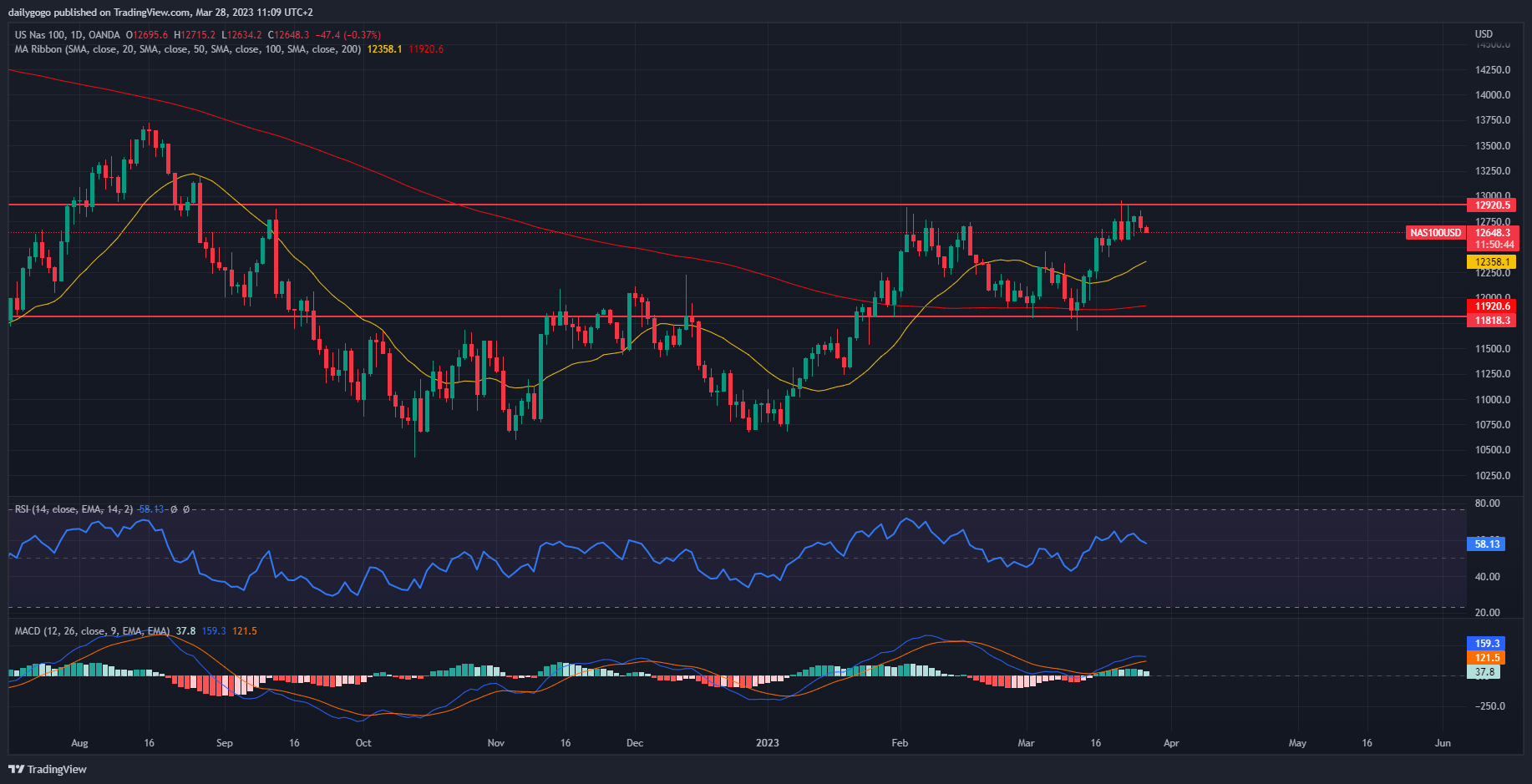EURUSD
The U.S. dollar weakened in early European trade on Tuesday due to returning confidence in the global banking sector.
Fed Funds futures indicate a 30% chance of a rate hike in May, but fully pricing in a 25bp cut in July and a total of 80bp of easing by year-end.
EUR/USD increased by 0.2% to 1.0817 as European Central Bank officials stressed the need to tackle inflation and highlighted the strength of the region's banks.
Governing Council member Mário Centeno noted that the European Central Bank must consider recent financial-market stress when making decisions on interest rates but emphasized the focus is on controlling inflation and bringing it down to 2%.
The return of confidence in the global banking sector has weakened demand for the U.S. dollar, allowing EUR/USD to rise. Although Fed Funds futures suggest a possible rate cut in July, European Central Bank officials are focusing on controlling inflation and maintaining the strength of the region's banks.
GBPUSD
The DXY, which tracks the dollar against a basket of six other currencies, traded 0.2% lower at 102.320.
GBP/USD rose 0.3% to 1.2321, maintaining recent strength after Bank of England Governor Andrew Bailey said on Monday that inflation remained the main driver of monetary policy decisions.
British Retail Consortium data released on Tuesday showed overall shop price inflation rose to 8.9% in March from 8.4% in February, the largest increase since its records started in 2005
The Conference Board (CB) Consumer data is being announced today at 16 GMT+1 and will likely show the impact of stresses in the financial system.
The rising inflationary pressures in the UK as seen in the British Retail Consortium data are likely to keep the Bank of England focused on inflation in their monetary policy decisions, which may support GBP/USD strength. However, the market will closely watch the CB Consumer data announcement to assess the level of stress in the financial system and its impact on consumer confidence, while the dollar's performance against a basket of currencies will remain a key factor in GBP/USD's performance.
CRUDE OIL
The oil bulls managed to return the prices over $70 (up over $73 this morning).
Uncertainty over Fed feeds volatility in oil despite talk of just one more rate hike.
Concerns over increased geopolitical tensions also kept investors wary of crude, after Russian President Vladimir Putin said he will station tactical nuclear weapons in Belarus, escalating tensions with NATO over Ukraine.
So far, there are more indications that oil has managed to stay above that level without plunging into free-fall as it did in 2020 and 2014 when going under the 200-week average intensified selling rather than attracting buyers as it did this time.
The market remains cautious amid concerns of increased geopolitical tensions and the impact of the Fed's decision on the volatility of oil. The ability of oil to stay above the $70 mark without free-falling as it did in the past is a positive sign, but investors will continue to monitor the situation closely.
GOLD
The turbulence in the banking sector has led to a pause in May interest rate hikes, which is now widely expected from the Federal Reserve.
Gold has become an increasingly popular foreign reserve among emerging economies seeking to diversify away from the dollar.
Russia's central bank has added approximately 1 million ounces of gold to its holdings in the past year, amid Western sanctions.
A decrease in the relative value of the dollar would likely support the price of gold.
Gold continues to be influenced by shifts in the global economy and geopolitical landscape. The pause in expected interest rate hikes, coupled with increasing demand for gold as a foreign reserve, along with significant purchases by central banks such as Russia, highlights the metal's continued appeal as a safe-haven asset. Investors will keep an eye on the relative value of the dollar as a key driver of gold's performance in the near term.
NASDAQ
Calmer tones return to global markets after weekend banking deal.
Gloomy economic news is ultimately negative for corporate earnings, and by extension for equity markets themselves.
Apple (NASDAQ:AAPL), Meta Platforms (NASDAQ:META), Alphabet (NASDAQ:GOOGL), and Microsoft (NASDAQ:MSFT) were in the red.
Fed Chair Jerome Powell said banking stress could trigger a credit crunch with "significant" implications for a slowing U.S. economy.
The calmness returning to the global markets may be short-lived as the Fed's warning about the banking stress impact on the U.S. economy and the ongoing gloomy economic news continue to weigh on the equity markets, with some of the major tech stocks already experiencing losses.




